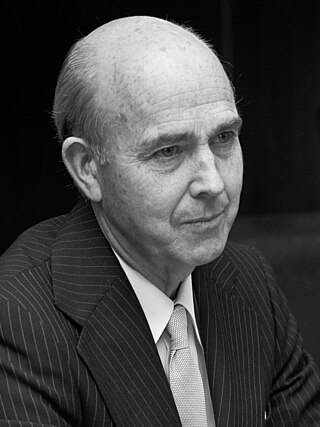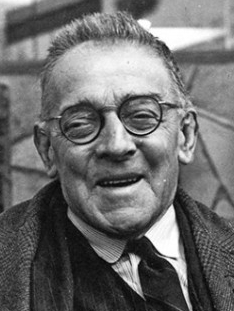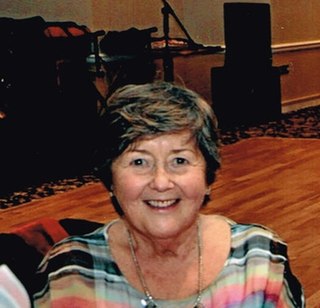Related Research Articles
Fianna Fáil, officially Fianna Fáil – The Republican Party, is a conservative and Christian-democratic political party registered in both the Republic of Ireland and Northern Ireland.

Éamon de Valera was an Irish statesman and political leader. He served several terms as head of government and head of state and had a leading role in introducing the 1937 Constitution of Ireland.

Cearbhall Ó Dálaigh was an Irish Fianna Fáil politician, judge and barrister who served as the fifth president of Ireland from December 1974 to October 1976.

Timothy Patrick "Tim Pat" Coogan is an Irish writer, broadcaster and newspaper columnist. He served as editor of The Irish Press newspaper from 1968-87. He has been best-known for such books as The IRA, Ireland Since the Rising, On the Blanket, and biographies of Michael Collins and Éamon de Valera. His biography of de Valera proved controversial, taking issue with the former Irish president's reputation and achievements, in favour of those of Collins, whom he regards as indispensable to the creation of the new State.

Erskine Hamilton Childers was an Irish Fianna Fáil politician who served as the fourth president of Ireland from June 1973 to November 1974. He is the only Irish president to have died in office. He also served as Tánaiste and Minister for Health from 1969 to 1973, Minister for Transport and Power from 1959 to 1969, Minister for Posts and Telegraphs from 1951 to 1954 and 1966 to 1969, Minister for Lands from 1957 to 1959 and Parliamentary Secretary to the Minister for Local Government and Public Health from 1944 to 1948. He served as a Teachta Dála (TD) from 1938 to 1973.

Arthur Joseph Griffith was an Irish writer, newspaper editor and politician who founded the political party Sinn Féin. He led the Irish delegation at the negotiations that produced the 1921 Anglo-Irish Treaty, and served as the president of Dáil Éireann from January 1922 until his death later in August.

The Irish Volunteers, also known as the Irish Volunteer Force or the Irish Volunteer Army, was a paramilitary organisation established in 1913 by nationalists and republicans in Ireland. It was ostensibly formed in response to the formation of its Irish unionist/loyalist counterpart the Ulster Volunteers in 1912, and its declared primary aim was "to secure and maintain the rights and liberties common to the whole people of Ireland". Its ranks included members of the Conradh na Gaeilge, Ancient Order of Hibernians, Sinn Féin and the Irish Republican Brotherhood. Increasing rapidly to a strength of nearly 200,000 by mid-1914, it split in September of that year over John Redmond's support for the British war effort during World War I, with the smaller group opposed to Redmond's decision retaining the name "Irish Volunteers".

The 1973 Irish general election to the 20th Dáil was held on Wednesday, 28 February 1973, following the dissolution of the 19th Dáil on 5 February by President Éamon de Valera on the request of Taoiseach Jack Lynch. The general election took place in 42 Dáil constituencies throughout Ireland for 144 seats in Dáil Éireann, the house of representatives of the Oireachtas.
Mícheál Ó Móráin was an Irish Fianna Fáil politician who served as Minister for Justice from 1968 to 1970, Minister for the Gaeltacht from 1957 to 1959 and 1961 to 1968 and Minister for Lands from 1959 to 1968. He served as Teachta Dála (TD) from 1938 to 1973.

John Charles McQuaid, C.S.Sp., was the Catholic Primate of Ireland and Archbishop of Dublin between December 1940 and January 1972. He was known for the unusual amount of influence he had over successive governments.
Rúaidhrí de Valera was an Irish archaeologist most known for his work on the megalithic tombs of his country. He was the son of Éamon de Valera and Sinéad de Valera.
Sinn Féin is the name of an Irish political party founded in 1905 by Arthur Griffith. It subsequently became a focus for various forms of Irish nationalism, especially Irish republicanism. After the Easter Rising in 1916, it grew in membership, with a reorganisation at its Ard Fheis in 1917. Its split in 1922 in response to the Anglo-Irish Treaty which led to the Irish Civil War and saw the origins of Fianna Fáil and Fine Gael, the two parties which have since dominated Irish politics. Another split in the remaining Sinn Féin organisation in the early years of the Troubles in 1970 led to the Sinn Féin of today, which is a republican, left-wing nationalist and secular party.
"On Language & the Irish Nation" was the title of a radio address made by Éamon de Valera, then Taoiseach of Ireland, on Raidió Éireann on St. Patrick's Day 1943. It is often called The Ireland that we dreamed of, a phrase which is used within it, or the "comely maidens" speech. The speech marked the 50th anniversary of the foundation of the Gaelic League, a group promoting Irish culture and the Irish language. In the most frequently quoted passage of the speech, de Valera set out his vision of an ideal Ireland:
The ideal Ireland that we would have, the Ireland that we dreamed of, would be the home of a people who valued material wealth only as a basis for right living, of a people who, satisfied with frugal comfort, devoted their leisure to the things of the spirit – a land whose countryside would be bright with cosy homesteads, whose fields and villages would be joyous with the sounds of industry, with the romping of sturdy children, the contest of athletic youths and the laughter of happy [or comely; discussed later] maidens, whose firesides would be forums for the wisdom of serene old age. The home, in short, of a people living the life that God desires that men should live. With the tidings that make such an Ireland possible, St. Patrick came to our ancestors fifteen hundred years ago promising happiness here no less than happiness hereafter. It was the pursuit of such an Ireland that later made our country worthy to be called the island of saints and scholars. It was the idea of such an Ireland - happy, vigorous, spiritual - that fired the imagination of our poets; that made successive generations of patriotic men give their lives to win religious and political liberty; and that will urge men in our own and future generations to die, if need be, so that these liberties may be preserved. One hundred years ago, the Young Irelanders, by holding up the vision of such an Ireland before the people, inspired and moved them spiritually as our people had hardly been moved since the Golden Age of Irish civilisation. Fifty years later, the founders of the Gaelic League similarly inspired and moved the people of their day. So, later, did the leaders of the Irish Volunteers. We of this time, if we have the will and active enthusiasm, have the opportunity to inspire and move our generation in like manner. We can do so by keeping this thought of a noble future for our country constantly before our eyes, ever seeking in action to bring that future into being, and ever remembering that it is for our nation as a whole that future must be sought.
Brian Ó Cuív was a Celtic scholar who specialised in Irish history and philology.
John Dignan was Bishop of Clonfert from 1924 until his death in 1953, a committed social reformer and initiator of early debates about social welfare provision in the early decades of newly-independent Ireland.

Joe Clarke was an Irish republican politician.
Elizabeth Bloxham was an Irish feminist and suffragist, serving as the national organizer for Cumann na mBan in the lead up to the 1916 Easter Rising and up through the Irish War of Independence.

Máire de Paor, née MacDermott, was an Irish historian and archaeologist who also worked as a researcher and presenter for the national broadcaster RTÉ.
Cian Ferriter is an Irish judge and lawyer who has served as a Judge of the High Court since October 2021. He previously practiced as a barrister specialising in commercial and media law.
References
- ↑ Ferriter, Diarmaid. "The weight of Anglo-Irish history –much more than an external affair" (PDF). British Council Northern Ireland. Archived (PDF) from the original on 15 April 2021.
- ↑ Spain, John (7 November 2012). "Diarmaid Ferriter: I was nearly born in embassy blaze". Irish Independent . Archived from the original on 4 August 2020.
- ↑ "Royal Society for the Arts: Professor Diarmaid Ferriter". Archived from the original on 28 September 2007. Retrieved 16 February 2007.
{{cite web}}: CS1 maint: bot: original URL status unknown (link). - 1 2 Holden, Louise (16 September 2008). "Judging Diarmaid". The Irish Times. p. 16. Retrieved 23 February 2009.
- ↑ "Official homepage of What If on RTÉ.ie". RTÉ.ie . Archived from the original on 20 March 2007. Retrieved 21 February 2007.
{{cite web}}: CS1 maint: bot: original URL status unknown (link). - ↑ The limits of liberty page (and see also Families in the Oireachtas).
- ↑ RIA.